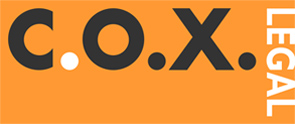I would like to use an interview from the TAZ for my documentary theater work. Who do I need to contact? ask for permission?
Permission should always be obtained before incorporating a third-party text into your own work. Particular caution is required in the case of an article in the format of an interview – here, several parties may hold rights at the same time, namely both the authors (this includes, for example, translators in addition to the two interview parties) and possibly also the publishing house.
In the case at hand, the authors had consented to the use of the interviews.
Authors (authors, interviewees, translators)
The statements of the interviewees enjoy copyright protection, LG Berlin, judgment of 20.09.2011, Ref. 16 O 134/11; but also the executing editors, see LG Hamburg – decision of November 8, 2012 – Ref. 308 O 388/12 is entitled to a copyright. In the case of articles that have been translated, the responsible translators also have a copyright to the translation – depending on the level of creation. It should be noted that only the parties directly involved in the conversation are entitled to co-authorship pursuant to § 8 para. II UrhG to the entire interview, see LG Hamburg – decision of November 8, 2012 – Ref. 308 O 388/12; LG Berlin, judgment of 20.09.2011, Ref. 16 O 134/11.
Publishers
Furthermore, it must be checked whether the publishers, i.e. the newspaper, magazines or periodicals, have been granted an exclusive right to use the interview. This would mean that even authors could not grant the right of use to third parties without the prior consent of the relevant publishers. It therefore makes sense to clarify these facts and then, if necessary, to first ask the publishers and then the authors for permission.
In general:
- In the case of freelance journalists: According to the statutory provisions, in the case of articles that have appeared in newspapers, there is a presumption that only a simple right of use has been granted, cf. III UrhG. Journalists may therefore grant rights of use to third parties independently and without consulting the publisher, unless otherwise agreed. However, the situation is often different for articles published in magazines: Frequently, an exclusive right of use is granted for a period of one year unless expressly regulated otherwise, cf. the presumption rule of Section 38 para. I UrhG.
- In the case of employed journalists, the granting of exclusive rights of use to the publisher will usually result from the purpose of the contract, cf. section 43 UrhG.
However, the ancillary copyright for press publishers is not affected in the present case, cf. section 87 f-h UrhG. This ancillary copyright is limited to the making available to the public of text excerpts that are not too small by commercial providers of search engines or aggregators.
Conclusion: The legal situation therefore depends on several factors – to be on the safe side, you should always obtain permission from the publisher.
